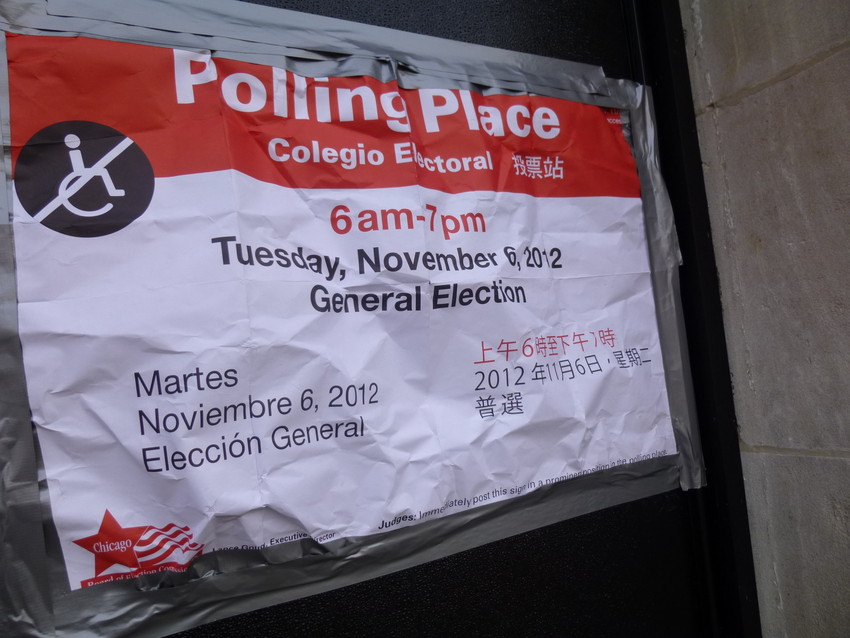Election integrity is itself an Election Day battleground in Illinois
By Caroline O'Donovan

Election integrity is itself an Election Day battleground in Illinois
By Caroline O'DonovanVoters aren’t required to show a photo ID in order to vote in Illinois, but some of them might have trouble voting with or without one, mostly because of a state law that allows anyone at a polling place to challenge another’s right to vote. Marissa Liebling, an attorney with the Chicago Lawyers’ Committee on Civil Rights and the head of that group’s Voting Rights Project, says she’s concerned by the increasing number of these voter challenges she has seen in the last few years.

Liebling’s not afraid to point the finger at some particular anti-voter fraud organizations that she feels misuse the state’s voter challenge law; that includes Defend the Vote, which is directed by Sharon Meroni.
Meroni says her group is non-partisan, although she herself is a Republican committeewoman and one of her major sponsors is the United States Justice Foundation, a judicial organization dedicated to “advancing the conservative agenda.”
Meroni says she knows of no election integrity group in Illinois that has organized teams of voter challengers this year. Her own poll watchers are focused on security issues like making sure ballots are securely sealed. She’s not opposed to the idea of independent challenges, however.
“If there are groups out there that have — through some research of their own — identified that somebody doesn’t deserve to vote, and they’re gonna take their time to sit in the polling place to until that person should arrive, that’s not a job done out of maliciousness,” Meroni said. “That’s a job done out of patriotism.”
Once a voter has been challenged, the election judges present will vote on whether or not the challenge is valid. There is supposed to be bipartisan representation among the judges, but that’s not always the case. Rey Calderon of Common Cause, another voters’ rights advocacy group, says organizations like Defend the Vote recruit conservative judges to pose as Independents to intentionally disrupt the process.
Once challenged, a voter can still get a provisional ballot, but Calderon says many do not realize the extra steps they have to take to validate their eligibility. Often they must go to a local courthouse within 24 hours; Calderon says, typically, only a little over 60 percent of provisional ballots are counted.
Overuse of voter challenging is just one concern about what could happen at polling places on Election Day. Whether because of intention or poor training, past election judges have been known to demand photo identification cards from voters who should not need to supply it.
Alonzo Rivas, the midwest regional counsel for the Mexican American Legal Defense and Educational Fund, works to ensure that Spanish-speaking voters can understand their ballots. By federal law jurisdictions with a significant Spanish-speaking population are required to provide language assistance at the polls. Rivas says Illinois is well ahead of nearby Ohio and Iowa, and he is confident that the majority of Latinos will have no trouble voting. But some communities did need some extra help over the last few months.
“There were a number of jurisdictions we found that they relied on Google Translate, which often doesn’t do a literal translation,” he said. “We kind of assisted in letting them know, this is why this translation is not correct and someone from a Latin American country wouldn’t be able to understand it.”
The MALDEF, Common Cause and the Voter’s Rights Funds will all be on hand, either via hotline or in person, to help deal with issues of intimidation and legality on Election Day. Concerned voters can call 1-866-OUR-VOTE to speak with an attorney. Marissa Liebling says attorneys will be available to talk with election judges in case of disputes. Voters can also report suspicious incidents — either accusations of wrong-doing at polling places or baseless voter challenges — to the Illinois Board of Elections.